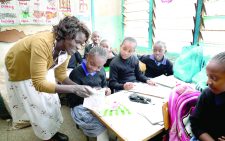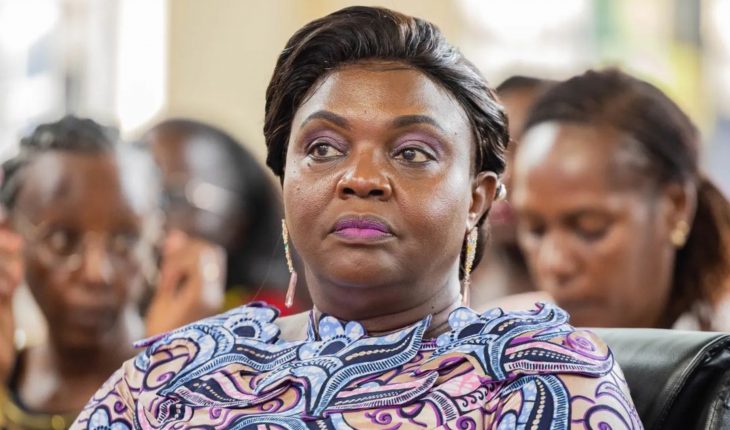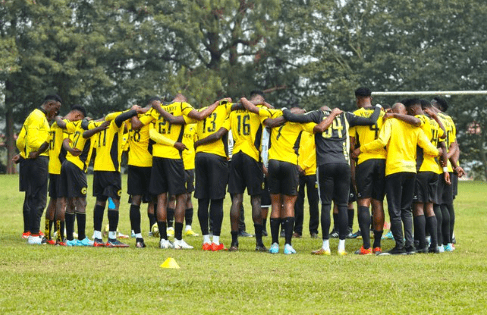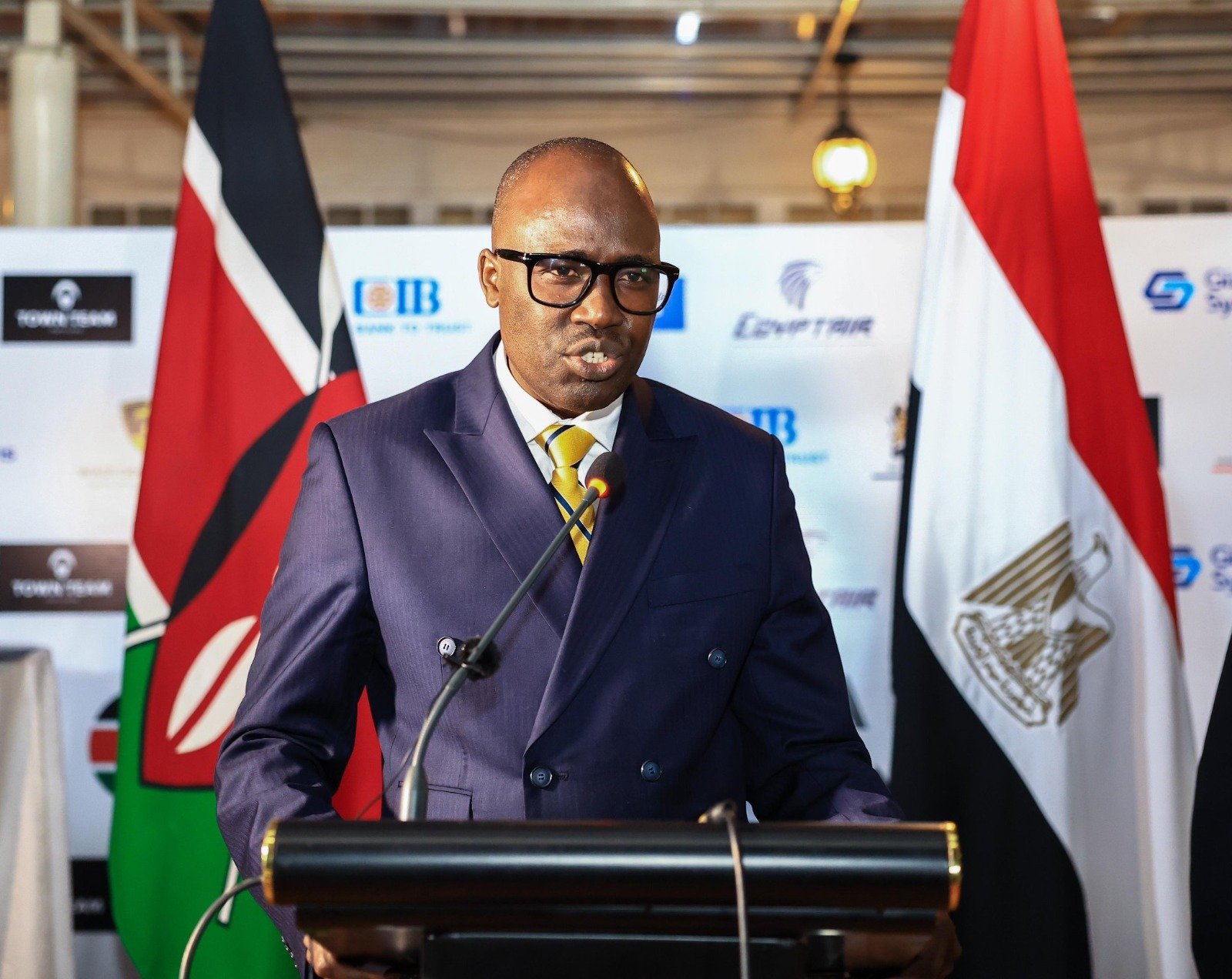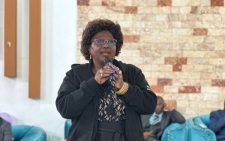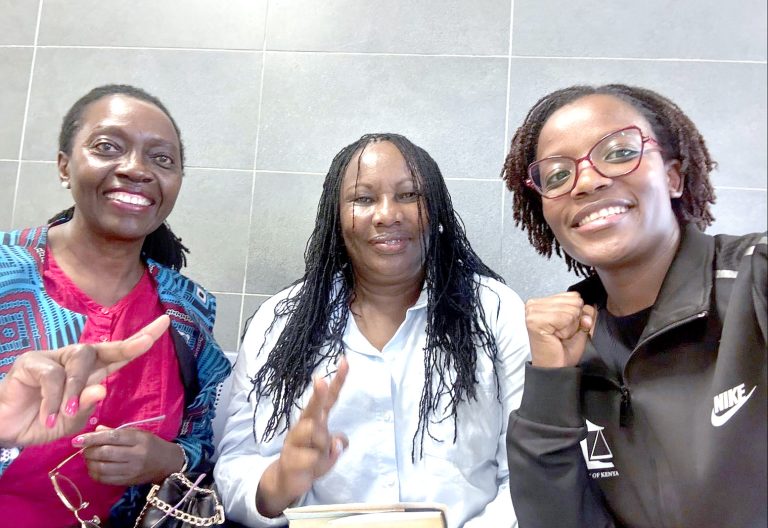KCSE leak baffles police as four suspects arrested

The credibility of this year’s Kenya Certificate of Secondary Education (KCSE) examination is at stake after the Directorate of Criminal Investigations (DCI) raised concern on the high rate of cheating.
The DCI has consequently began investigations to establish how hundreds of students have been able to access question papers either hours or minutes before the examination is administered.
Detectives now believe there is an elaborate web of fraudsters comprising school heads, security agents, parents and college students involved in the syndicate.
The investigation started as the government tightened measures to curb heightened attempts of cheating.
By last evening, four suspects had been arrested in a syndicate involving sale of examination papers.
DCI boss George Kinoti confirmed that officers from the Cyber Crimes Unit (CCU) had taken over the matter to establish the source of the leak.
The vice was brought to an end about seven years ago under the leadership of then Education Cabinet Secretary Fred Matiang’i.
“I have directed that all the phones confiscated from students and teachers be handed over to CCU,” Kinoti told ‘People Daily’.
Entire exam material
He said investigations had established that the four suspects are students in at least four institutions of higher learning.
“The main suspect, Gideon Kibet Tanui, alias Evans Kipruto, is an Information Technology student at Baringo Technical College. He was picked from his rented room near the college on March 15 at around 10:30am.
He was busy administering English Paper 2 and Chemistry Paper 1 to students at Silibwet and Sitoito secondary schools in Molo, via his WhatsApp group which has 70 members,” Kinoti said.
The suspect — who was allegedly selling the papers at Sh500 each — is also a member of two fraudulent Telegram groups with over 17,000 followers.
The DCI said the suspect’s M-Pesa account had over Sh10,000 at the time of his arrest. He was also operating a KCB account at Kabarnet branch, where he would transfer cash from his M-Pesa to avoid reversals. “To conceal his identity, the SIM card he was using was registered using the identification details of one Evans Kiprono,” he added.
The arrest led detectives to another suspect, Kevin Kiprotich Langat, a Bachelor of Arts student at Rongo University, who was nabbed on Thursday. Langat was in constant communication with the first suspect and had forwarded the English exam to him, according to DCI.
“It is at Rongo University that a wider syndicate of the exam fraudsters exist, in a Telegram group dubbed ‘Kale Group’ created under the name ‘Bailing Out’, among other groups,” the DCI said.
Langat led detectives to yet another suspect, a first-year political science student identified as Justice Leting, who was distributing the Kiswahili paper and preparing answers for the Chemistry practical paper. Shockingly, Leting’s mobile phone had the entire KCSE exam material.
He said he was working with other students at the institution, who are being pursued by DCI.
“Using cyber and digital forensics, detectives have intercepted tens of messages containing screenshots of the papers being examined, including handwritten answers. These will be subjected to forensic examination at the DCI National Forensic Laboratory to ascertain the authors,” Kinoti observed.
All the confiscated phones from across the country are this morning expected to be handed over to the CCU and the forensics unit at the DCI as the probe starts.
And though Education Cabinet Secretary George Magoha has put on a brave face, downplaying the issue, police sources intimated that the “situation is alarming” and could threaten the credibility of the tests.
Detectives believe there is a conspiracy between some officials at Kenya National Examination Council (KNEC) and teachers, particularly principals.
How some candidates sneaked into examination rooms with mobile phones is yet another puzzle.
For instance, detectives in Nairobi’s Kayole area were on Friday morning shocked when they confiscated 50 phones from students sitting the Chemistry practical paper. Shockingly, a true copy of the paper had already been downloaded on 14 of these phones.
“How did the students enter the examination room with phones? And who is sending the papers to their phones?” a senior DCI officer asked yesterday.
A similar incident was reported in Nairobi’s Starehe division when 20 students at a school in Eastleigh were found with phones which had downloaded versions of the Kiswahili paper.
Sources within DCI said that more than 200 cases — all involving exam leak through mobile phones — were detected in the first week of the tests.
Education officials say the figure is alarming, given that 287 students who sat the 2020 KCSE examination had their results cancelled due to cheating.
Despite the police raising the alarm, Magoha has consistently denied the claims of any exam leak, saying what is being circulated are fake papers. “Stop confusing the children; the exam has not leaked and it shall not leak. To say that the exam has leaked means that the papers were exposed before they left the containers and we know that is not true, and shall not be true. We came out of that five years ago. What has happened is early exposure of the papers,” Magoha insisted yesterday.
The CS said that in order to curb incidences of early exposure, the government has put in place stringent measures.
Tightens loopholes
He said schools near the examination containers will be the last to pick their exam papers as the ministry tightens possible loopholes for examination leak.
Magoha said the containers would be opened at 6:30am instead of 6am as has been the case in previous years to reduce the time officials are in contact with the papers. “There is no reason to release the question papers an hour before exam time for schools near the containers. They can wait until it is about 20 minutes to go,” said the CS .
A DCI investigator said they would get to the bottom of the matter, particularly on how the papers are downloaded on the students’ mobile phones. They suspect that some KNEC insiders could be colluding with teachers to leak the papers.
Closer scrutiny by detectives established that almost all the mobile phones confiscated had the exact examination questions of the day, leaving no doubt that it could be a well-choreographed scheme.


